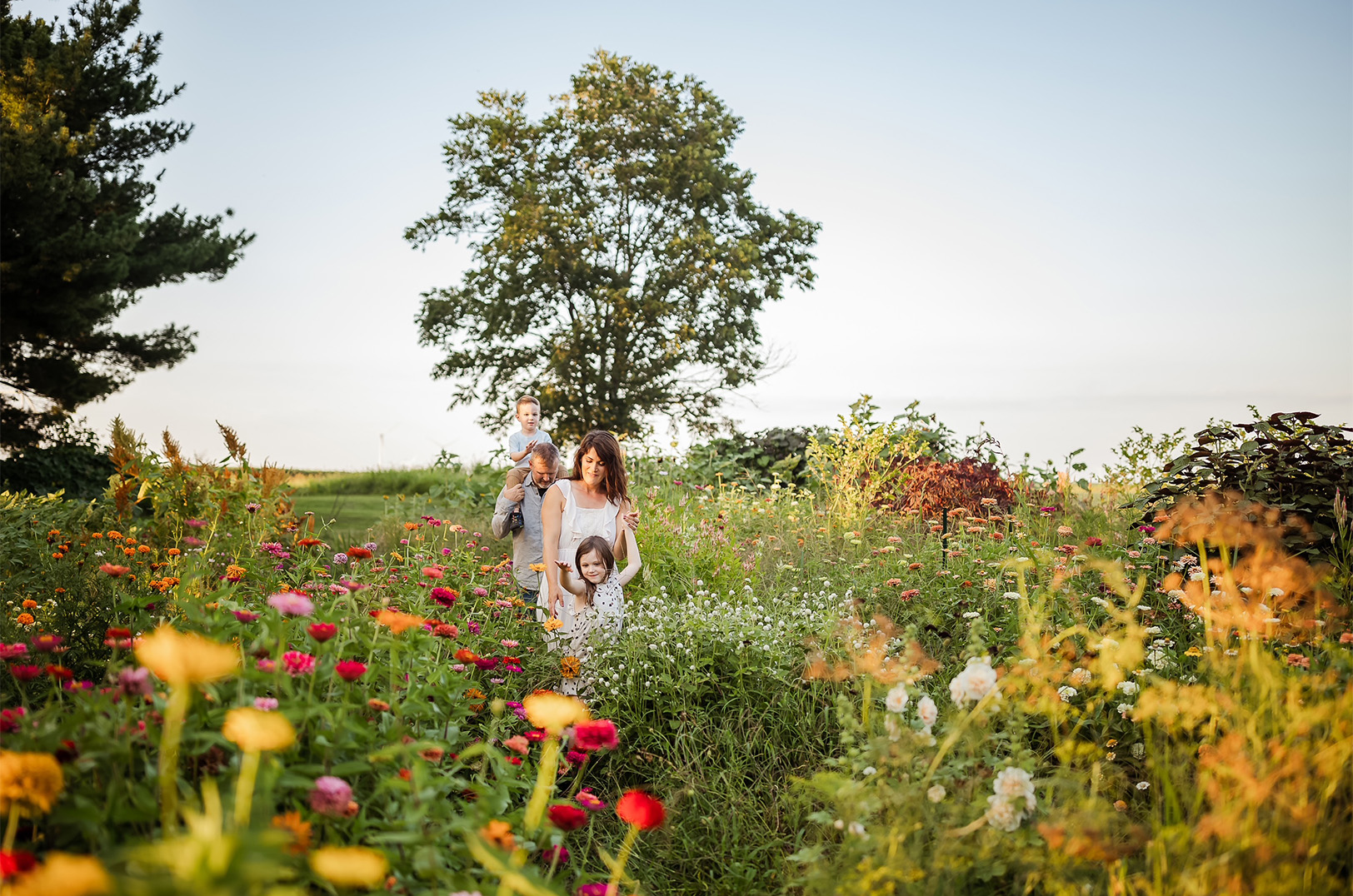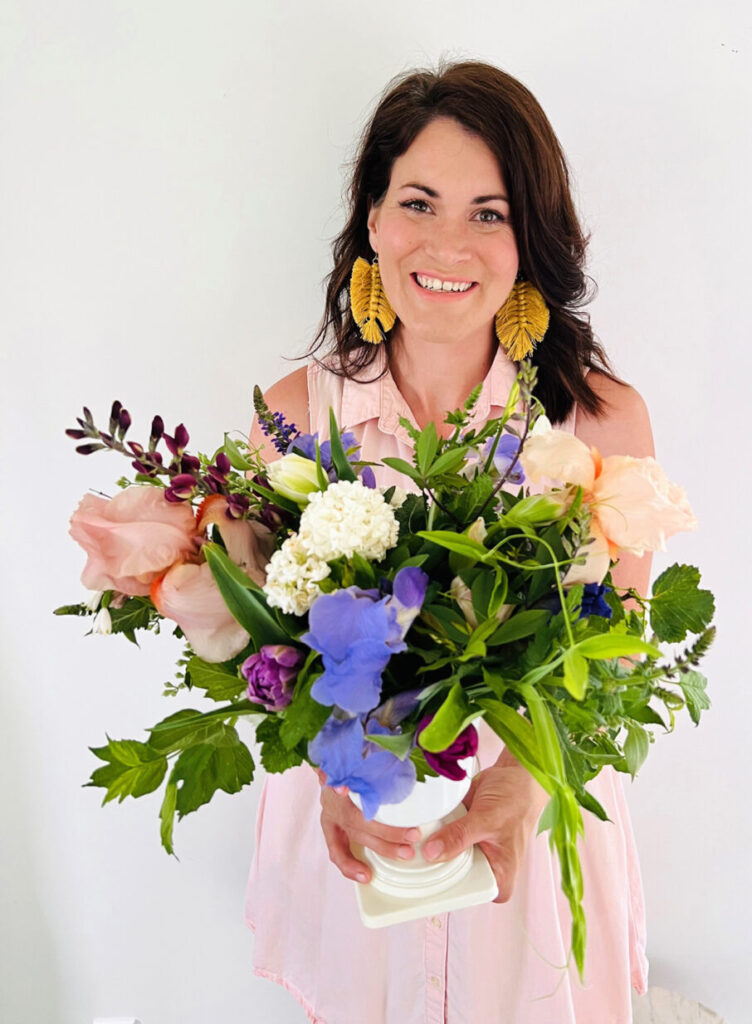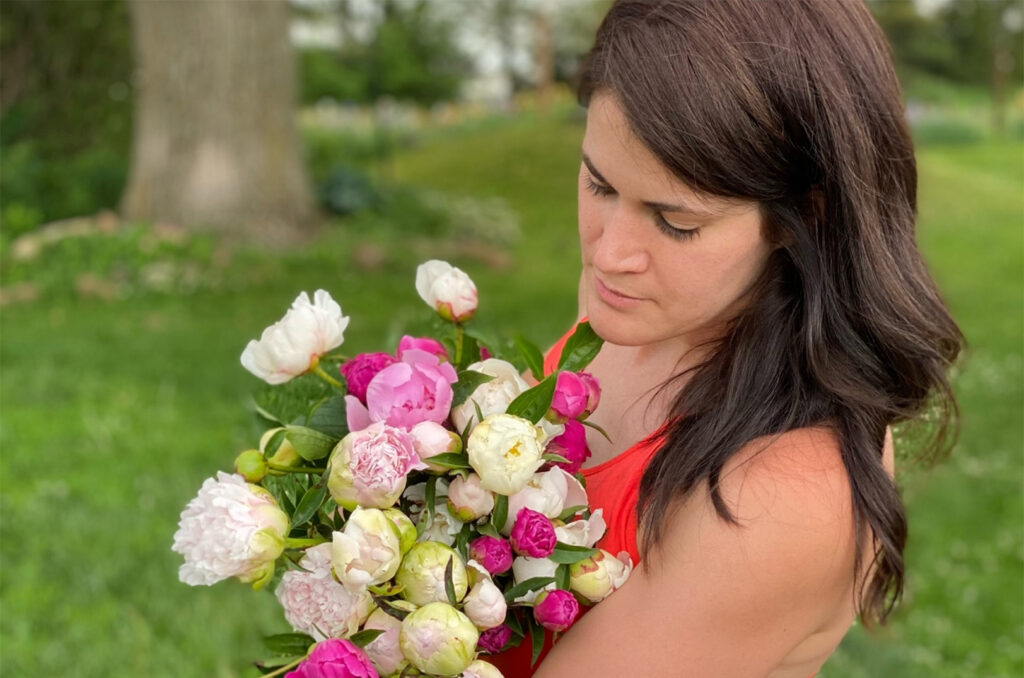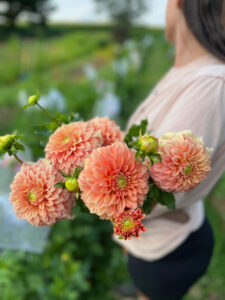Editor’s note: The following story was produced through a paid partnership with MOSourceLink, which boasts a mission to help entrepreneurs and small businesses across the state of Missouri grow and succeed by providing free, easy access to the help they need — when they need it.
ROCK PORT, Missouri — Mandy Herron turned two acres in her backyard into a blooming business with Flower and Forged Farms, a concept that sprouted from a peaceful moment in her garden.
It happened one day in 2019 when she was on bedrest; pregnant with her son while her husband was on a military assignment overseas in France. Herron saw her now 8-year-old daughter chasing butterflies and playing in her zinnia patch.
“I was feeling down, and it was really a pivotal moment that gave me clarity and hope,” said Herron, who was spending more time gardening in that period of uncertainty. “Slowly but surely, I had other people approaching me about growing flowers.”
She launched Flower and Forged Farms in 2020 during the pandemic, quickly adapting to the new normal of social distancing and working on the business’s Porch Petal subscription that delivered floral bouquets to customers’ doorsteps, while maintaining zero contact to brighten people’s current state of isolation in a safe, healthy way.
“I was thinking, ‘How can we get the word out?’ So, I made this silly video of me delivering to someone’s porch, and me also being the receiver on the end and being excited,” Herron said. “It started with just 10 customers, but it was enough to keep going.”
Blooming evolution
From that subscription model, she reached new heights for business and purchased a farmhouse with her husband, Thomas Herron, in 2021.
Starting her business wasn’t without obstacles. When Herron’s husband deployed again that same year, she became a full-time mom, farmer, business owner and general contractor, juggling it all while expanding her farm.
“I’ve become really strong the last few years, just figuring it out and pivoting,” she said. “I very quickly realized I’m not in control.”
Despite the obstacle of finding balance and the spare time to pursue her business while managing her responsibilities, she successfully has expanded the farm to grow more varieties of flowers and even vegetables for specialized arrangements.
“Each year, each fall, we are planting more and more. So we really hope that in a few years that I’ll just have flowers coming out of my ears,” Herron said with a laugh.
Her primary focus is selling her flowers wholesale to designers and event florists. However, Herron also serves her local community through offering her subscription program, local custom bouquets as well as wedding design throughout the year. She event leads occasional workshops.
In addition, Herron is part of the Flatland Floral Collective, a community of farmers and designers that grow and sell local and sustainable florals and buyers who can shop for a variety of flowers on the website or pick up their arrangements in Omaha, Nebraska.
Ethically grown flowers
Herron’s passion extends beyond just growing flowers. With a background in international business and a heart for ethical practices, she’s deeply committed to promoting locally grown, specialty-cut flowers.
About 80 percent of the florals that most consumers in the U.S. get from regular florists are imported from countries like Colombia, Ecuador and Guatemala, Herron said.
“These imported flowers often come with environmental and labor issues,” she said. “As a mom, I can’t support that.”
Through hosting workshops where guests can build their own floral arrangements, she educates her community about the benefits of locally sourced flowers, emphasizing the difference in quality and the importance of supporting fair labor practices.
“The truth matters, and I try to be tactful yet honest when educating others about where their flowers come from,” Herron said.
Remembering your why
Dahlias currently are Herron’s most in-demand flowers, which are typically challenging to grow in Missouri, as they do not thrive in heavy clay soils, common in the state. She solves this by planting them with her own compost, with a series of strategic amendments.
As Herron continues to grow her farm, she and her husband are focused on studying their numbers, sales, and crops, to adapt their offerings to meet demand and prepare for the next season.
“I’ve learned that being creative is great, but if what you’re growing isn’t selling, it’s not worth the time and effort,” she said.
Her husband, Thomas, is essential to their farm, preparing flower beds, controlling weeds, and building a greenhouse to expand their seed starting. She emphasized she couldn’t run the business without his support.
Her farm is more than just a business; it’s also a place where her children can grow and learn alongside her, she said. Being a mom entrepreneur is difficult, but Herron finds ways to involve her kids in her work.
Involving her family in everything that she does, Herron built a swing set where her kids can play nearby and prioritizes spending time with them when needed, even if it means putting off work. She also involves her kids in her gardening, like letting her daughter choose and arrange dahlias, making it fun and meaningful.
“It’s about finding that balance and remembering why I’m doing this in the first place — my kids are my why,” she said. “I want them to be able to reflect one day and say, ‘Yeah, my mom kicked butt.”







































